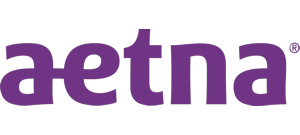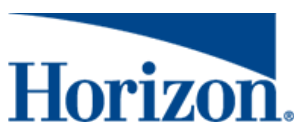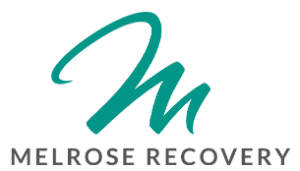Heroin Withdrawal Laguna Beach
Heroin Withdrawal Laguna Beach – Welcome to Melrose Recovery, your pathway to transformation and healing. Located in the vibrant heart of Los Angeles, California just moments away from iconic Hollywood and the picturesque beaches of Santa Monica and Venice, we are dedicated to changing lives. Since 2015, our comprehensive heroin addiction treatment approach encompasses detoxification, residential care, and aftercare services, all tailored to meet each individual’s unique needs on their recovery journey.
Led by a compassionate team of addiction professionals and counselors, we offer a range of therapy programs designed to support and guide individuals suffering black tar heroin withdrawal toward lasting sobriety. At Melrose Recovery, we believe in the power of personalized care and diverse treatment options to pave the way for a brighter future.

Heroin Withdrawal and Detox: What You Need to Know
Heroin withdrawal can be an intense and uncomfortable process. Symptoms typically begin within a few hours of the last dose and often peak within 24 to 48 hours. While these symptoms can be difficult, they are usually not life-threatening and can be managed with proper support and medical care.
Understanding Heroin Withdrawal – Heroin Withdrawal Laguna Beach
Heroin withdrawal occurs when someone who is physically dependent on the drug suddenly stops or reduces their use. Heroin affects the brain’s reward system, triggering the release of dopamine—a chemical associated with pleasure and reinforcement. Over time, repeated use builds tolerance and physical dependence, requiring larger doses to achieve the same effects.
When heroin use is stopped abruptly, the body reacts to the absence of the drug, resulting in a range of withdrawal symptoms.
Heroin Use in the U.S. – Heroin Withdrawal Laguna Beach
According to the National Survey on Drug Use and Health, around 1.1 million people aged 12 and older in the U.S. have used heroin, highlighting the widespread nature of the problem.
Heroin Street Names – Heroin Withdrawal Laguna Beach
Common Street Names for Heroin
-
Dope
-
Smack
-
H
-
Junk
-
Brown
-
Horse
-
Skag
-
China White (usually a refined white powder heroin, sometimes mixed with fentanyl)
-
Black Tar (specifically refers to the sticky, dark form from Mexico)
-
Chiva (Spanish slang for black tar heroin)
-
Boy
-
Diesel
-
Snow (can refer to white heroin, but also cocaine – context matters)
-
White Horse
-
Hell Dust
Heroin Mixed With Other Substances (Combo Slang) – Heroin Withdrawal Laguna Beach
-
Speedball – Heroin mixed with cocaine
-
Goofball – Heroin mixed with methamphetamine
-
Chocolate Chip Cookies – Heroin and crack cocaine
-
Snowball – Cocaine and heroin, similar to a speedball
-
Dragon – Can refer to heroin smoked (as in “chasing the dragon”)
Common Signs of Heroin Withdrawal Laguna Beach
Symptoms may begin 4 to 12 hours after the last dose and include:
- Dilated pupils
- Goosebumps
- Watery eyes and frequent yawning
- Muscle aches
- Nausea
- Agitation and anxiety
Acute (Short-Term) Symptoms – Heroin Withdrawal Laguna Beach
Acute withdrawal symptoms can include:
- Restlessness and insomnia
- Bone and muscle pain
- Vomiting and diarrhea
- Tremors in the legs
- Light sensitivity
- High blood pressure and rapid heart rate
- Sweating and gastrointestinal distress
These symptoms typically peak within 24–48 hours and gradually ease after about a week.
Protracted (Long-Term) Symptoms – Heroin Withdrawal Laguna Beach
In some cases, withdrawal symptoms can persist for weeks or even months. Known as Post-Acute Withdrawal Syndrome (PAWS), these lingering effects may include:
- Fatigue and sleep disturbances
- Difficulty concentrating
- Mood swings, anxiety, and depression
- Panic attacks
- Hypersensitivity and restlessness
- Memory issues
These symptoms are usually milder than acute withdrawal but may still disrupt daily life. Over time, they diminish with continued abstinence and support.
Potential Complications – Heroin Withdrawal Laguna Beach
While heroin withdrawal is rarely life-threatening, complications can occur, including:
- Dehydration from vomiting and diarrhea
- Aspiration if vomit is inhaled into the lungs
- Relapse, which can be especially dangerous after a detox period when tolerance is lower, increasing the risk of overdose
Timeline of Heroin Detox and Withdrawal
4–6 Hours After Last Dose
-
Early symptoms like anxiety, sweating, restlessness, and muscle aches begin.
Days 1–2
-
Symptoms intensify and may include insomnia, cold flashes, tremors, high blood pressure, and GI upset.
Days 3–7
-
The peak withdrawal period passes, but symptoms like nausea, diarrhea, and abdominal cramps continue.
Days 7–14
-
Physical symptoms start to subside, though cravings and mood disturbances may remain.
Factors That Affect Withdrawal Duration – Heroin Withdrawal Laguna Beach
The length and severity of withdrawal depend on:
- Duration and frequency of heroin use
- Dosage
- Method of use (e.g., injection vs. snorting)
- Co-occurring physical or mental health conditions
The Role of Medically Supervised Detox – Heroin Withdrawal Laguna Beach
Undergoing detox in a medical setting is strongly recommended for those with moderate to severe heroin addiction. Medical supervision can help:
- Monitor physical and emotional health
- Provide medications to reduce symptoms
- Reduce the risk of complications and relapse
Common Detox Medications
- Methadone: A long-acting opioid that eases withdrawal symptoms and reduces cravings
- Buprenorphine (Suboxone): Decreases withdrawal discomfort and can shorten detox duration
- Naltrexone: Blocks the brain’s opioid receptors and helps prevent relapse after detox is completed
Seeking Help
Recovery from heroin addiction is challenging—but entirely possible with the right support. Whether you choose an inpatient or outpatient treatment center, starting your recovery journey is a courageous first step.
Get Help Now
If you or a loved one is struggling with heroin addiction, contact Melrose Recovery today to learn about detox and treatment options. Professional support can make all the difference in achieving long-term recovery.
Frequently Asked Questions About Heroin – Heroin Withdrawal Laguna Beach
General Questions About Heroin
What is heroin?
Heroin is an illegal, highly addictive opioid drug made from morphine, a natural substance extracted from the seed pod of the opium poppy plant.
How is heroin used?
Heroin is commonly injected, snorted, or smoked. The method of use can affect how quickly it acts and how addictive it becomes.
What does heroin look like?
Heroin can appear as a white or brown powder or as a black sticky substance known as black tar heroin.
What is black tar heroin?
Black tar heroin is a dark, sticky form of heroin that is less refined than white powder heroin and typically comes from Mexico.
Why is black tar heroin more dangerous?
Black tar heroin is often impure and contains harmful additives. It is also associated with a higher risk of infections due to the way it’s commonly injected.
How does heroin affect the brain?
Heroin binds to opioid receptors in the brain, triggering a rush of dopamine, which causes intense pleasure and euphoria, reinforcing drug use.
What are the short-term effects of heroin use?
Short-term effects include euphoria, dry mouth, warm flushing skin, drowsiness, slowed breathing, and nausea.
What are the long-term effects of heroin use?
Long-term use can lead to collapsed veins, liver and kidney disease, infection of the heart lining, mental decline, and addiction.
Is heroin physically addictive?
Yes, heroin is extremely addictive. Users quickly develop a tolerance and dependence, making it difficult to stop without withdrawal symptoms.
What are heroin withdrawal symptoms?
Symptoms include muscle and bone pain, vomiting, diarrhea, cold flashes, restlessness, and intense cravings.
Can you overdose on heroin?
Yes. Heroin overdose is common and can be fatal. It suppresses breathing and heart rate, leading to death if untreated.
What increases the risk of heroin overdose?
Mixing heroin with other depressants (like alcohol or benzodiazepines), decreased tolerance after detox, and using alone all increase overdose risk.
What does a heroin overdose look like?
Signs include shallow or stopped breathing, blue lips or fingernails, cold or clammy skin, and unconsciousness.
What is naloxone (Narcan)?
Naloxone is an opioid antagonist that can quickly reverse a heroin overdose if administered in time.
Can sharing needles spread disease?
Yes. Sharing needles can transmit HIV, hepatitis B and C, and other blood-borne infections.
Is black tar heroin more likely to cause infections?
Yes. Its impure nature and sticky consistency can lead to serious infections like abscesses and necrotizing fasciitis.
How is heroin addiction treated? – Heroin Withdrawal Laguna Beach
Treatment typically includes a combination of medication-assisted therapy (like methadone or buprenorphine), counseling, and behavioral therapy.
What is medication-assisted treatment (MAT)? – Heroin Withdrawal Laguna Beach
MAT uses medications such as methadone, buprenorphine, and naltrexone to reduce cravings and withdrawal symptoms.
Can heroin addiction be cured? – Heroin Withdrawal Laguna Beach
Addiction is a chronic condition, but it can be effectively managed with long-term treatment and support.
What is heroin detox? – Heroin Withdrawal Laguna Beach
Detox is the process of eliminating heroin from the body. It usually takes 5–14 days and may involve medical supervision.
Is heroin legal anywhere? – Heroin Withdrawal Laguna Beach
No. Heroin is classified as a Schedule I controlled substance in the U.S., meaning it has no accepted medical use and a high potential for abuse.
Where does black tar heroin come from? – Heroin Withdrawal Laguna Beach
Most black tar heroin in the U.S. is produced in Mexico and trafficked across the southern border.
Why do people start using heroin? – Heroin Withdrawal Laguna Beach
Some start due to curiosity or peer pressure, while others begin after developing an opioid dependence from prescription painkillers.
Is heroin more dangerous than prescription opioids? – Heroin Withdrawal Laguna Beach
Both are dangerous, but heroin is often more potent and unregulated, increasing the risk of overdose and infection.
How can someone get help for heroin addiction? – Heroin Withdrawal Laguna Beach
Help is available through drug treatment centers, medical professionals, hotlines, and support groups like Narcotics Anonymous.
Health Insurance PPO Plans for Heroin Addiction Drug Rehab Laguna Beach
PPO Plans for Melrose Recovery Drug Rehab In Los Angeles, CA
Finding effective treatment for drug and alcohol addiction is one of the most important steps in the recovery journey. For many individuals and families, navigating how to pay for rehab can be a major concern. Fortunately, Melrose Recovery, a leading addiction treatment center in Los Angeles, California, accepts a wide range of PPO (Preferred Provider Organization) health insurance plans, making high-quality care more accessible and affordable.
Why Choose Melrose Recovery?
Melrose Recovery offers a structured and supportive environment for individuals seeking recovery from substance use disorders. Their programs include:
- Medical Detox
- Residential Inpatient Treatment
- Dual Diagnosis Treatment
- Individual and Group Therapy
- Aftercare Planning
What sets Melrose apart is their client-centered approach, experienced clinical team, and commitment to long-term recovery. Located in Los Angeles, the facility provides a safe and comfortable setting to begin healing.
What Are PPO Insurance Plans?
PPO insurance plans allow policyholders to see healthcare providers both inside and outside of their insurance network, usually without a referral. When it comes to addiction treatment, this flexibility can be vital.
Key PPO benefits for rehab coverage:
- Out-of-network options: You can still receive coverage for facilities not directly in your provider’s network.
- No referral needed: You don’t need a referral from a primary care physician to start treatment.
- More provider choices: PPO plans give you more freedom to choose the rehab facility that fits your needs.
Does Melrose Recovery Accept My PPO Insurance?
Melrose Recovery works with most major PPO insurance providers, including but not limited to:
- Aetna
- AmeriHealth
- Anthem
- Blue Cross Blue Shield
- Cigna
- Hawaii Medical Service Association (HMSA)
- Humana
- Kaiser Permanente
- Medical Mutual
- Premera Blue Cross
- UnitedHealthcare
Melrose Recovery’s admissions team is available 24 hours a day 714-442-7782 to verify your insurance benefits quickly and confidentially. This process helps determine your coverage, deductible, co-pays, and out-of-pocket maximums before starting treatment.
Verifying Insurance Coverage
To find out if your PPO insurance plan covers treatment at Melrose Recovery:
-
Call Melrose Recovery directly – Speak with an admissions specialist who can walk you through the insurance verification process.
-
Submit insurance info online – Many treatment centers, including Melrose, offer a secure online form for quick verification.
-
Check with your insurer – You can also contact your insurance company directly and ask about your behavioral health benefits.
Don’t Wait to Look for a Drug Addiction Treatment Program
Get In Touch
info@melroserecovery.com
501 North Mariposa Ave, Los Angeles, CA 90004








